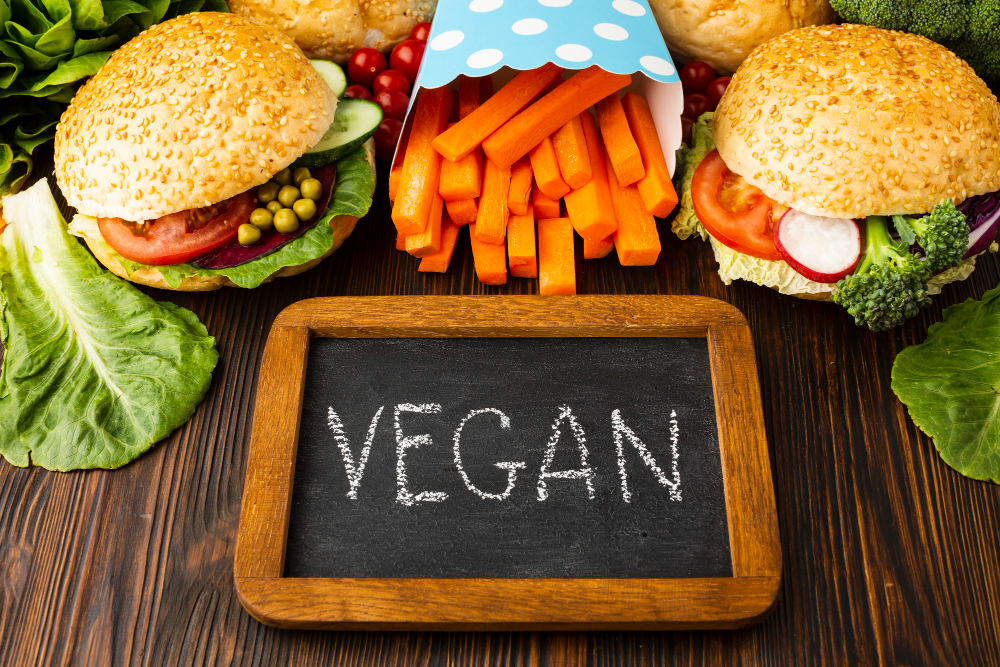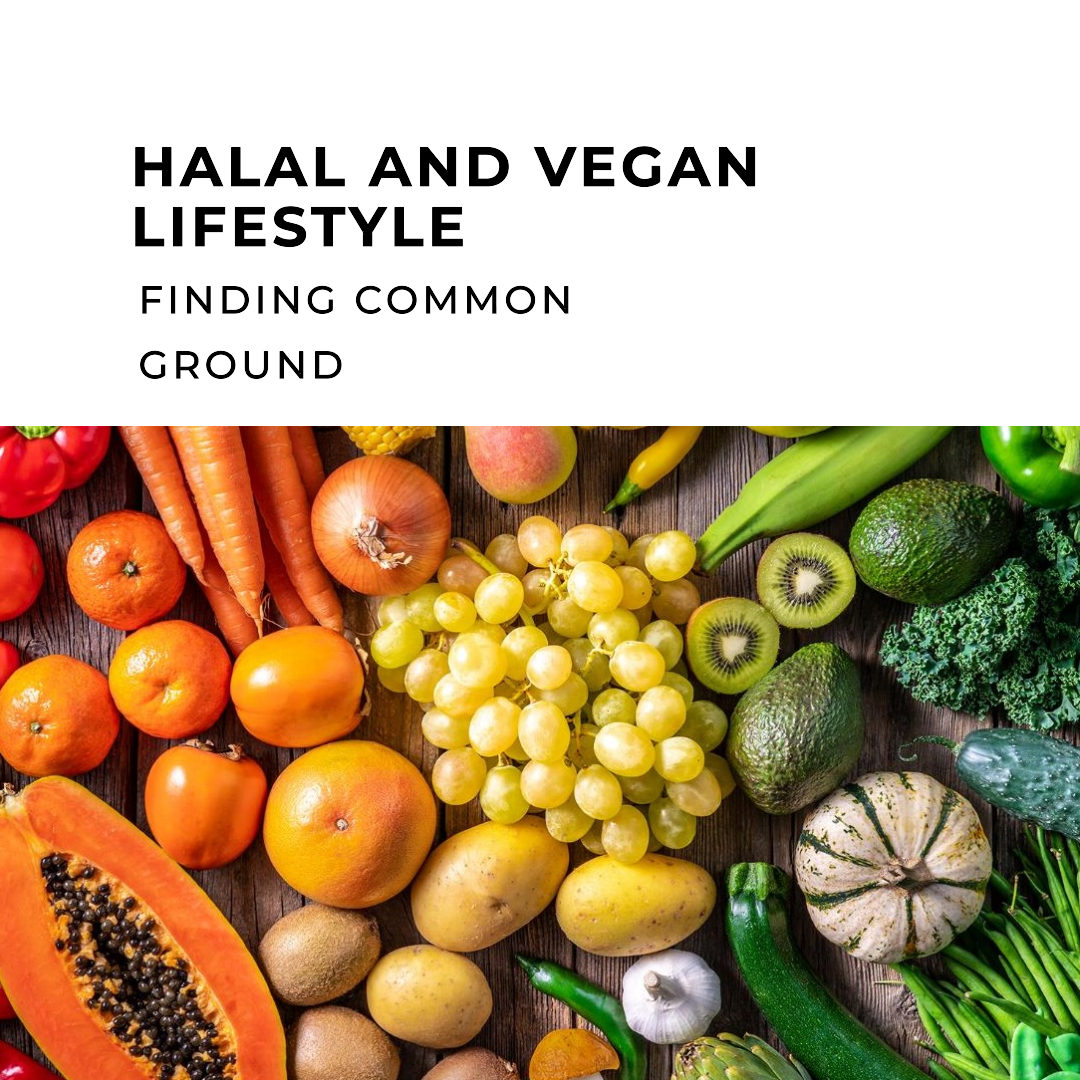In recent years, both Halal and vegan lifestyles have gained significant attention, each driven by ethical, health, and environmental considerations. While Halal focuses on what is permissible according to Islamic law, veganism emphasizes avoiding animal products. Despite their differences, there are many areas where these two lifestyles intersect. This article explores the similarities between Halal and vegan lifestyles and offers practical tips for those looking to combine the two.
Similarities Between Halal and Vegan Lifestyles
- Ethical Considerations
Both Halal and vegan lifestyles are rooted in ethical considerations. Halal emphasizes humane treatment of animals and cleanliness, while veganism focuses on animal rights and reducing harm to animals. Both practices advocate for ethical consumption and mindfulness in dietary choices. - Health Benefits
Halal and vegan diets can both offer significant health benefits. Halal diets prioritize clean, permissible foods and often avoid harmful substances like alcohol and certain animal fats. Vegan diets, rich in fruits, vegetables, grains, and legumes, are known for their health benefits, including lower risks of heart disease and certain cancers. Combining these diets can lead to a well-balanced and healthful eating pattern. - Environmental Impact
Both lifestyles recognize the importance of sustainability. Veganism is well-known for its lower environmental footprint due to the avoidance of animal agriculture, which is a major contributor to greenhouse gas emissions. Halal practices also encourage responsible and sustainable farming, emphasizing waste reduction and environmental stewardship.
Practical Tips for Combining Halal and Vegan Lifestyles

- Explore Plant-Based Halal Foods
Many plant-based foods are naturally Halal. Fruits, vegetables, grains, and legumes are all Halal and form the foundation of a vegan diet. Incorporating a variety of these foods ensures that meals are both Halal and vegan. - Halal Certification for Vegan Products
Look for Halal-certified vegan products. Many food manufacturers now offer Halal-certified vegan options, ensuring that the products meet both dietary requirements. This certification provides assurance that the products are free from any non-Halal ingredients and have been processed according to Islamic principles. - Cooking with Halal and Vegan Ingredients
Experiment with recipes that use both Halal and vegan ingredients. For example, use plant-based proteins like lentils, chickpeas, and tofu in traditional Halal dishes. Spices and herbs commonly used in Halal cooking can enhance the flavor of vegan meals, creating delicious and satisfying dishes. - Community and Support
Engage with communities that share both Halal and vegan values. Online forums, social media groups, and local meetups can provide support, recipe ideas, and encouragement. Connecting with others can make it easier to maintain a Halal and vegan lifestyle.
Case Studies

Halal Vegan Restaurants
Several restaurants around the world are successfully combining Halal and vegan principles. These establishments offer menus that cater to both dietary requirements, proving that it is possible to enjoy delicious meals without compromising on ethical or religious values. One example is “The Halal Guys,” which offers a variety of plant-based options that are both Halal and vegan.
Personal Stories
Individuals who have adopted both Halal and vegan lifestyles often report positive experiences. For instance, Sarah, a practicing Muslim and vegan, shares how she enjoys a diverse range of foods and feels healthier and more ethically aligned with her values. She often cooks traditional Halal dishes with plant-based ingredients, creating a unique and satisfying culinary experience.
Halal and Vegan Lifestyles Conclusion
Halal and vegan lifestyles, though distinct, share many common principles, including ethical considerations, health benefits, and environmental consciousness. By exploring the similarities and incorporating practical tips, it is possible to enjoy a diet that respects both Halal and vegan values. Whether through exploring plant-based Halal foods, seeking Halal-certified vegan products, or connecting with supportive communities, the combination of these two lifestyles can lead to a fulfilling and mindful way of eating.
Halal and Vegan Lifestyles FAQs
Q: Can a vegan diet be Halal?A: Yes, a vegan diet can be Halal as long as it avoids any non-Halal ingredients and follows Islamic principles of cleanliness and ethical sourcing.
Q: Are there Halal-certified vegan products?A: Yes, many food manufacturers offer Halal-certified vegan products, ensuring they meet both dietary requirements.
Q: What are some examples of Halal and vegan foods?A: Fruits, vegetables, grains, legumes, and plant-based proteins like lentils, chickpeas, and tofu are all Halal and vegan.
Q: How can I find recipes that are both Halal and vegan?A: Look for cookbooks, websites, and social media groups dedicated to Halal and vegan cooking. Many traditional Halal dishes can be adapted with plant-based ingredients.
Further Readings…
- Amazing Benefits of Halal Farming Practices
- Innovative and Ethical: The Future of Halal Food
- Halal and Sustainable Food Practices: A Comprehensive Guide
- The Ethics of Halal and Vegan Diets
- Health Benefits of Vegan Diets
- Halal Certification for Vegan Products
- Halal Vegan Recipes.

